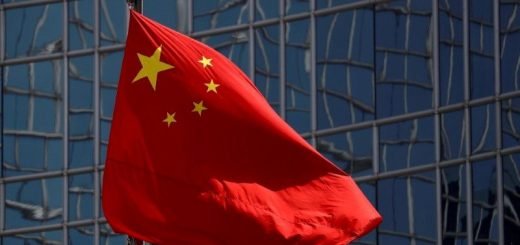Decoding Myanmar: The key to the Military’s coup lies in the constitution
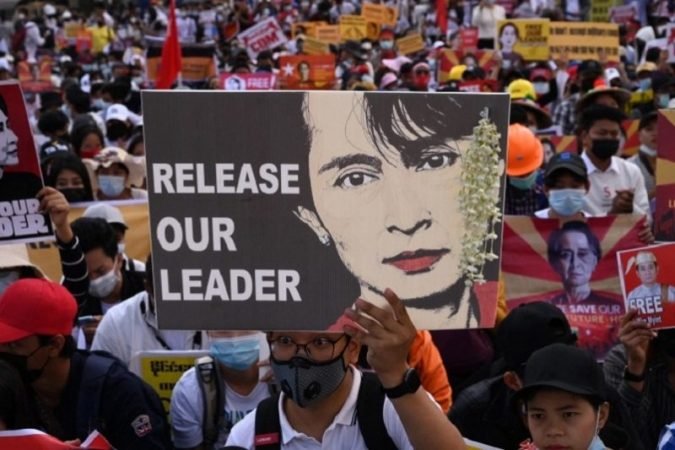
How the country’s controversial constitutional referendum led the way for the arrest of the Nobel prize winner and president- elect Aung San Suu Kyi.
In February 2021, Myanmar’s military under the leadership of the Senior General, Min Aung Hlaing had announced that it had taken control over the country, putting the elected president Aung San Suu Kyi under house arrest. The announcement first came on military-owned Myawaddy TV where the military said that the coronavirus crisis and the government’s failure to postpone November elections were reasons for the emergency. The military strongly alleges that the elections, where Suu Kyi’s party captured 396 out of 476 seats in the Parliament were fraudulent, however, it has failed to provide any proof of the same.
In Myanmar’s history, the traces of military rule are not unprecedented. Ever since the country received formal independence, it has witnessed little but no democratic reform up until 2008 when the country saw the drafting of a controversial constitutional referendum. Predominantly, the country has seen a fight between two parties since then, the military-backed Union Solidarity and Development Party (USDP) and Suu Kyi’s National League for Democracy (NLD)
Aung San Suu Kyi founded the National League for Democracy (NLD) back in 1989 when pro-democracy protests in Myanmar were met with a brutal military crackdown and as many as 5,000 people were killed. Just two years after this, the military called for an election under International pressure. Suu Kyi’s NLD won by a landslide in the 1990 election. The military refused to recognise the results or hand over power and Aung San Suu Kyi was arrested and placed in house arrest. This incredibly familiar, incessant trajectory of the military and its hunger for power is hence, no stranger to the region.
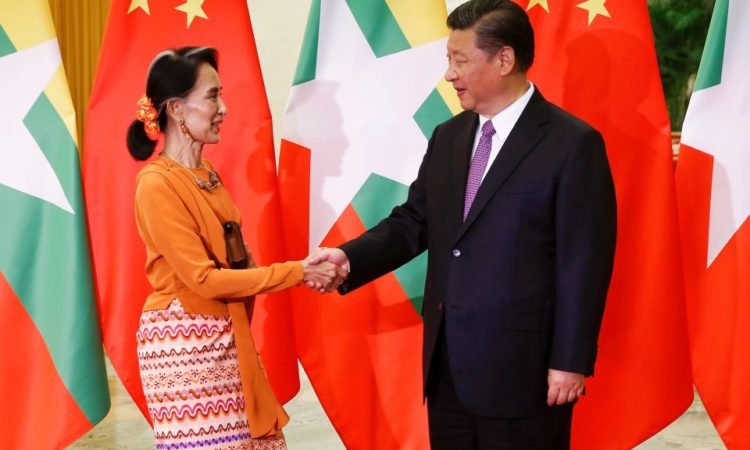
Prior to the formulation of the new constitution, the country saw widespread intimidation, sanctions on free speech and opposition by the military. Denial of basic freedom; right to assembly, association, unions; continuous arbitrary arrests and detention were common in the region. The 2008 referendum was proposed by the military as a step towards achieving “discipline-flourishing genuine multiparty democracy” in the country, however, it was far from being that.
To begin with, the citizens did not have an informed and free choice in the making of their own constitution, the State Peace and Development Council (SPDC) under the military also didn’t allow healthy debates and discussion around it. When a lot of protestors and activists raised their voices about the injustice of this process, they were detained. But the most excruciating and undemocratic part of this process was the fact that the military had carefully designed the referendum to perpetuate their control in the country by inculcating certain laws that give them power in times of emergency. The whole process received a lot of backlash from international activists and peacekeeping organisations such as the Human Rights Watch which declared the constitution as a “coup mechanism in waiting.”
The drafted constitution contains several provisions which strengthen the rule of the military under the guise of pro-democratic reforms. Article 436, per se, gives the military one-quarter of the seats in the upper and lower houses of the national parliament and one-third of the seats in the state/regional parliaments. This law is of chief importance as it gives the military the power to veto any proposed amendment as the changes need more than 75% votes in the parliament.
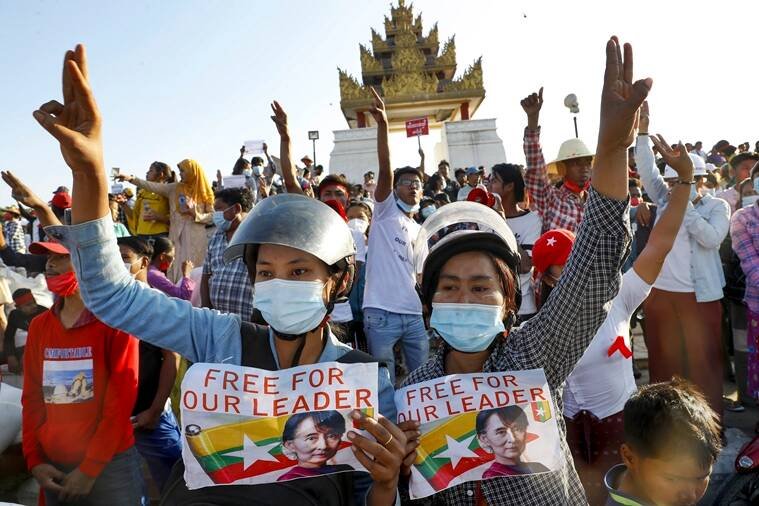
Several other constitutional measures have been put in by the military to ensure their control including creating a coup mechanism in waiting under article 418, which hands over the authority of the nation’s lawmaking, governance and jurisdiction over to the Commander in Chief under emergency. The constitution also says that only serving military officers can lead the three most powerful ministries, being Defense, Home Affairs, and Border Affairs. The provisions also limited the parliament’s review of the military’s budgets.
Besides, the military also added constitutional article 59(f), which prohibits from the presidency any person whose children are citizens of another country, keeping in mind that both of Suu Kyi’s adult sons have British citizenship.
Structurally, the constitution does not specify proper channels of command and influence for various important actors like the President, Vice President, Home Minister; since during the time of emergency such as currently, the utmost power lies with the military. Considering all this, the recent coup in the region does not come as a surprise. History has been a witness that when a country’s constitution lays certain prerogatives either political or social, its tryst with ruin has attained vindication as is the case with Myanmar.
Role of China in maintaining Myanmar’s Military’s power
For decades now, China has been an important influencing factor in the Global South’s foreign and to an extent internal policies. China and Myanmar’s relations are shaped mainly by their shared geographical boundary and the former’s resolution of achieving economic monopoly over the South Asia region. Looking at the role of Myanmar in China’s controversial “Belt and Road Initiative” it could be analysed that the South Asian superpower expects to exploit the current situation and increase its influence in spheres like Myanmar’s energy security, trade and stability; thereby securing its own political and economic motives.
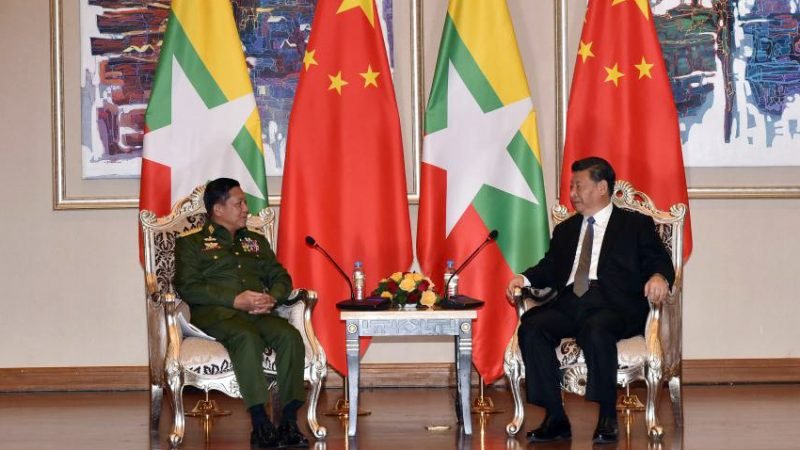
Although, the response of Beijing to the coup has also been incredibly muted. It can be inferred that China hopes to increase its economic control over Myanmar as political instability and international trade sanctions lead the latter to its footsteps.
However, in this current scenario, China has more to lose from Myanmar’s instability than to gain. If the instability in the region rises, which is a very real possibility due to the coup then the most affected by it will be China’s Belt and Road initiative as Myanmar acts as a strategic geographical player in the creation of the belt. Moreover, China’s image in the country and internationally will be tarnished and the work that it did NLD previously will be futile. In such situation, China’s stance on the situation can actually decide whether the nation decided to churn diplomatic points by internally building pressure upon the military or not.



